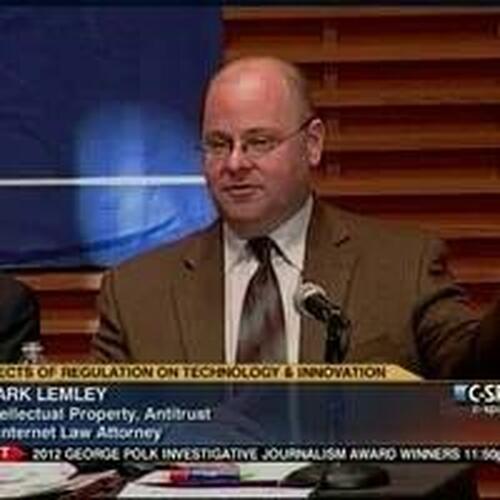
„Neo-Nazi Madness”: Stanford Law Professor Publicly Rebukes Zuckerberg And Drops Him As A Client
Authored by Jonathan Turley,
As lawyers, we often take a series of steps to protect the interests of our clients when it becomes necessary to sever or end representation. The dropping of a client can have a damaging impact on the reputation or standing of a client. That is why it was surprising to see Mark Lemley, a Stanford law professor publicly denounce Mark Zuckerberg as part of social media tirade. It is a deeply concerning lesson for students at a law school already rocked by prior controversies over intolerance for opposing viewpoints.

When we take on a client, we are closely identified with their interests and their case. That creates a deep professional obligation not to use that relationship for our own benefit against the interests of our client. Thus, a lawyer cannot sever an unpopular criminal defendant by denouncing him as morally reprehensible.
We continue to shoulder that obligation even after we end our representations. (I have had to sever clients in the past and avoided any public statement on the reasons or critical comments tied to the cases).
Professor Lemley did not represent Zuckerberg in a criminal matter. However, he was counsel in the high-profile representation of Meta in 2023 after comedian Sarah Silverman and other authors sued the company for alleged copyright violations.
After Zuckerberg recently pledged to restore free speech protections on Meta, many on the left went positively berserk.
This week, Lemley, a partner at the law firm Lex Lumina, decided that he was not content with simply severing the representation without fanfare or embarrassment to his clients.
Instead, he decided to publish a tirade on LinkedIn to denounce Zuckerberg’s “descent into toxic masculinity and Neo-Nazi madness.”
He declared “While I think they are on the right side in the generative AI copyright dispute in which I represented them, and I hope they win, I cannot in good conscience serve as their lawyer any longer.”
He further declared that he deactivated his Threads account because he did not want to “support a Twitter-like site run by a Musk wannabe.”
Rather than expressing concern over the trashing of a former client, Rhett Millsaps, managing partner of Lex Lumina, stated, “Money can’t buy everyone. We’re proud to be a firm that doesn’t sell out our values. Sadly, it seems this is becoming a rarer and rarer quality in America today.”
The incident raises a question that can be uncertain and difficult for many lawyers. I do not believe that Professor Lemley should be forced into a life of monastic silence over Meta policies unrelated to his litigation. Zuckerberg is a public figure and Lemley often engages in public commentary.
What concerns me is the nexus drawn by both Lemley and Lex Lumina to their representation of Zuckerberg to magnify their message of opposition. They could have simply severed representations without comment while Lemley could have continued his commentary in opposition to the new free speech policies. Frankly, while Professor Lemley is a respected and accomplished academic, it is doubtful that such criticism would have generated significant media attention. It was the connection to severing representation that amplified the message and caused the criticism to go viral.
Instead, the media is aflame with stories of how even Zuckerberg’s own lawyer and law firm cannot abide him. That was the obvious result of the public statements made by Lemley and the firm in demonizing their former client and citing their severance as morally compelled by his policies.
This can clearly be a gray area for many lawyers. The rules expressly prevent a lawyer from representing a client in an adverse case against a prior client or using information derived from the prior case. That is not the case here. Indeed, Professor Lemley appears to stand by the merits of the earlier case. The question is whether lawyers should use their prior representation as a type of cudgel in a public denunciation of a former client, using their prior representation to elevate their own voices.
None of this sits well with me, but I may be “old school” on such professional conduct issues. I would feel the same way if a lawyer attacked an anti-free speech figure like Hillary Clinton by emphasizing their prior representation. Once again, I am not suggesting that representation bars lawyers from criticizing former, high-profile clients. Professor Lemley has free speech rights and strong opinions in this area. However, the use of the severance or termination of representation as part of that criticism is deeply problematic in my view.
* * *
Jonathan Turley is the Shapiro Professor of Public Interest Law at George Washington University. He is the author of “The Indispensable Right: Free Speech in an Age of Rage.”
Tyler Durden
Fri, 01/17/2025 – 15:05
















